An immersive workshop for bioengineering or health-research students, biomaterials scientists, health professionals, medical device innovators and allied health industry innovators wanting to learn about the latest advances in advanced biomaterials, 3D printing technologies, and their use in medicine and cell therapies. The workshop is offered over 2 days and includes:
- Basic principals in design and clinical translation of implantable biomaterials, 3D printing and bioink design in medicine, and regenerative medicine
- Latest advances in biofabrication and 3D bioprinting technologies
- Latest advances in tissue engineering and regenerative medicine
- Additive manufacturing of medical devices
- Challenges facing clinical and commercial translation
- Clinical case studies
The 2 day workshop directly follows the Australasian Society for Biomaterials and Tissue Engineering (ASBTE2023) Conference (Te Pae Convention Centre, 12–14 April).
Find out more information about ASBTE2023
Workshop schedule
Earlybird registration closes this Friday, 31 March 2023.
Opening: 8:30am, Saturday 15 April 2023
Closing: 4pm, Sunday 16 April 2023
We start with coffee and registration in the Rolleston Lecture Theatre foyer, located on the ground floor of the University of Otago, Christchurch.
Download the 3rd Advanced Materials and 3D Printing in Medicine Workshop programme (PDF)
Our presenters
We have prestigious international and national researchers confirmed to deliver into our programme.
Outstanding line-up of international confirmed speakers and experts, including:
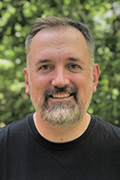 Professor Jason Burdick – University of Colorado (USA)
Professor Jason Burdick – University of Colorado (USA)
Jason A. Burdick, PhD is the Bowman Endowed Professor in the BioFrontiers Institute and Department of Chemical and Biological Engineering at the University of Colorado Boulder. Dr Burdick's research involves the design of new biomaterials that can be processed through fabrication methodologies to meet the needs of medicine, ranging from translational therapeutics to tissue models.
Jason currently has over 300 peer-reviewed publications, he is on the editorial boards of Journal of Biomedical Materials Research A, Biofabrication, Bioengineering, Advanced Healthcare Materials, and International Journal of Bioprinting, and he is an Associate Editor for ACS Biomaterials Science and Engineering. He has been recognised through numerous awards such as a Packard Fellowship in Science and Engineering, an American Heart Association Established Investigator Award, the Clemson Award for Basic Science through the Society for Biomaterials, and the Acta Biomaterialia Silver Medal Award. Jason has also been elected as a Fellow of the American Institute for Medical and Biological Engineering, to the International College of Fellows of Biomaterials Science and Engineering, and as a Fellow of the National Academy of Inventors. Lastly, he has founded several companies to translate technology developed in his laboratory towards clinical application.
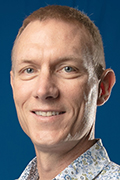 Professor Simon Cool – University of Queensland (Australia)
Professor Simon Cool – University of Queensland (Australia)
Simon Cool is Professor of Biomedical Engineering and Director of the University of Queensland Advanced Cell Therapy Manufacturing Initiative in the School of Chemical Engineering at the University of Queensland. Professor Cool began his scientific career at the University of Queensland more than 20 years ago. He received his BSc (hons) and PhD degrees from the University of Queensland, where he subsequently held a faculty position in the School of Biomedical Sciences. His areas of studies have included age-related changes in the structure of bone and teeth and the extracellular matrix compartment of skeletal tissue that guide stem cell behaviour and wound repair.
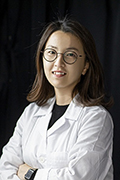 Associate Professor Jinah Jang – Pohang University of Science and Technology POSTECH (South Korea)
Associate Professor Jinah Jang – Pohang University of Science and Technology POSTECH (South Korea)
Dr Jinah Jang received her PhD at Pohang University of Science and Technology (POSTECH) in Korea, and trained as postdoctoral fellow in POSTECH and Institute for Stem Cell and Regenerative Medicine at University of Washington. She has joined the POSTECH in 2017 and now an Associate Professor in the Convergence IT Engineering, Mechanical Engineering, and School of Interdisciplinary Bioscience and Bioengineering.
She has published more than 110 peer-reviewed articles in prestigious journals in the are of bioprinting and tissue engineering. Her h-index and citations are 42 and more than 8,270, respectively (by Google Scholar). She currently serves as the Associate Editor of Bio-Design and Manufacturing and as an Executive board of directors (Secretary General) for International Society for Biofabrication. She also has received numerous awards including the SME 2022 Sandra L. Bouckley Outstanding Young Engineer Award (2022), and Korea Tissue Engineering and Regenerative Medicine Society (2021). Her research interest lies in engineering the functional human tissues using high-performance stem cells and printable biomaterials-based 3D bioprinting technology.
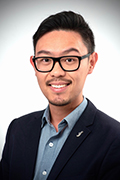 Associate Professor Khoon Lim – University of Sydney/University of Otago (Australia/New Zealand)
Associate Professor Khoon Lim – University of Sydney/University of Otago (Australia/New Zealand)
Associate Professor Khoon Lim is the Director of the Light Activated Biomaterials research group at the University of Sydney. He has generated >75 high impact journal publications (Chemical Reviews, Advanced Materials, Advanced Functional Materials), and raised a total of >$6.5 Million research grant funding as chief investigator. He is currently the President of the Australasian Society for Biomaterials and Tissue Engineering (ASBTE), Board of Directors of the International Society for Biofabrication (ISBF), and Executive Board Member of the Medical Technologies Translator Programme. He has won >20 competitive national and international awards, including the prestigious Jean Leray Award from the European Society for Biomaterials, and Young Investigator Award from the Tissue Engineering and Regenerative Medicine International Society. His research has also led to commercialisation of bioinks licensed to a US-based company and commercial contracts with industry partners. He currently sits on the editorial board of Biomaterials Science (Royal Society of Chemistry), International Journal of Bioprinting, Macromolecular Bioscience, IOP Biomedical Physics & Engineering Express and Journal of Materials Science: Materials in Medicine.
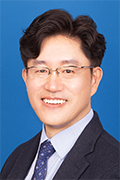 Professor Heungsoo Shin PhD – Hanyang University (South Korea)
Professor Heungsoo Shin PhD – Hanyang University (South Korea)
Dr Heungsoo Shin is a Professor in the Department of Bioengineering, Hanyang University, South Korea, and leader of bio-functional materials and tissue engineering laboratory. His main research interests include biomimetic materials, biomaterial surface modification, delivery of signaling molecules, 3D tissue engineering/biofabrication using stem cells, and analysis of cell-extracellular matrix interactions for regeneration of damaged musculoskeletal tissues.
He has co-authored over 150 peer-reviewed publications and 19 patents, and his innovative approaches in tissue engineering and biomaterials have been recognized by over 10 domestic and international awards. He has been serving as Editor-in-Chief for Tissue Engineering Part B: Reviews, associate editor for Biomaterials Research, and Tissue Engineering and Regenerative Medicine, and editorial board of Journal of Biomedical Materials Research A. He is actively involved in international societies including service as council member of TERMIS-AP, co-organiser of Aegean International Conference on Tissue Engineering, and chair of scientific committee of World Biomaterials Congress (WBC) 2024.
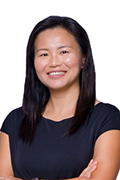 Professor Wai Yee Yeong – Nanyang Technological University (Singapore)
Professor Wai Yee Yeong – Nanyang Technological University (Singapore)
Professor Yeong Wai Yee is Professor of Mechanical Engineering in the School of Mechanical and Aerospace Engineering (MAE). She is currently the Associate Chair (Students) at MAE and Program Director in Singapore Centre for 3D Printing as well as HP-NTU Digital Manufacturing Corp Lab.
Professor Yeong's research work focuses on 3D bioprinting and 3D printing, including 3D printed electronics and metals. She has secured more than SGD$10M in research grants. The recognitions she has received include NRF Investigatorship awarded Class of 2022, named as one of the women in the Singapore 100 Women in Tech (SG100WIT) List 2021 and the winner of Inaugural TCT Woman in 3D Printing Award 2019. She was recognised in the Top 2% Scientists Worldwide in a study from Stanford University in 2021 and 2022. She has been recognised as one of the Highly Cited Researchers by Clarivate in 2022. Professor Yeong has published more than 180 papers and 4 textbooks. Her H-index is 62 with more than 14000 citations on google scholar. She is the Associate Editor for 2 international Tier 1 journals. Professor Yeong also served as member or reviewer on international grant panels.
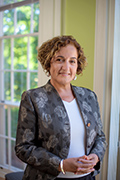 Professor Hala Zreiqat – University of Sydney (Australia)
Professor Hala Zreiqat – University of Sydney (Australia)
Hala Zreiqat, is a Payne-Scott Professor of biomedical engineering at The University of Sydney. The focus of her lab is on engineering functional synthetic biomaterials for use in regenerative medicine using cutting-edge materials, biological and nano techniques, and novel 3D-printing technologies. As the founder and Chair of the BIOTech Futures, a science and engineering mentorship program for high school students, she is also committed to improving opportunities for women and young scientists around the world.
- Professor Justin Cooper-White - University of Queensland (Australia)
- Professor Jurgen Groll – University of Wurzburg (Germany)
- Professor Fiona Wood – University of Western Australia/Royal Perth Hospital/Fiona Wood Foundation (Australia)
- Professor Shrike Zhang – Harvard University/Brigham and Women's Hospital (USA)
Venue
University of Otago, Christchurch
2 Riccarton Avenue 8011
Christchurch, New Zealand
This is an in-person workshop delivered at the University of Otago, Christchurch. We are co-located with the public and women's hospitals in Christchurch's health precinct, near the central business district. We are within easy commute from Christchurch International Airport.
University of Otago, Christchurch – Google map
Local transport and parking
There is limited car parking in the vicinity of the hospital. Check out Christchurch City Council's interactive 'find a car park' map for parking options, or park around the perimeter of Hagley Park and take a springtime walk through the park to the venue.
Alternatively make use of the hospital's park and ride shuttle service.
We are also located close to bus stops, so check out the maps and timetables available on the Metro web site.
Registration fee
We're pleased to offer reduced registration fees for students, as well as for delegates and students who also registered to attend the ASBTE2023 Conference (12–14 April). See below for 2023 fees:
| Registration type | Registration fee | After 1 April |
|---|---|---|
| Standard ASBTE2023 attendees | $250 | $350 Free |
| Tertiary student ASBTE2023 student attendees | $100 Free | $150 Free |
Morning tea, afternoon tea, and lunch provided on both days of the workshop.
What background do you need?
This emerging field makes beginners of us all, no matter the level of expertise we bring from another field. Be encouraged to register even if you are a new graduate or a much experienced clinician.
We are a multidisciplinary team, and so we are practiced at interacting with intelligent health and engineering professionals motivated to stretch themselves and apply their expertise in a new area.
If you hold a bachelor's degree (or equivalent) in a health, biological or structural engineering discipline then you will definitely contribute to and gain something from this course.
Contact us to discuss your background if you don't have a bachelor's degree. A strong relevant work history can often be a great preparation for this course.
About us
University of Otago
The University of Otago is a large collegiate-style university with an international reputation for excellence in a comprehensive range of subject areas.
Founded in 1869, it is New Zealand's first university and is renowned for its research-led culture and its beautiful campus of Gothic Revival buildings in the city of Dunedin.
The University also has medical school campuses in the cities of Christchurch and Wellington, enjoying close relations with the public hospitals there.
Department of Orthopaedic Surgery and Musculoskeletal Medicine
The University of Otago's Department of Orthopaedic Surgery and Musculoskeletal Medicine delivers teaching and research out of the University of Otago, Christchurch, and enjoys close collaborative relations with clinicians at Christchurch Hospital where it is co-located.
The Department is unique in New Zealand for combining surgical and medical approaches to musculoskeletal diseases and injuries into a unified discipline.
It plays a central role in providing the practical rotations for 5th-year medical students and trainee interns, offers a range of in-person and distance learning postgraduate qualifications for health professionals, and has a vibrant research culture supported by prestigious health-research grants.
Christchurch Regenerative Medicine and Tissue Engineering (CReaTE) Research Group
The Christchurch Regenerative Medicine and Tissue Engineering (CReaTE) research group is attached to the Department of Orthopaedic Surgery and Musculoskeletal Medicine. The group is also part of the Centre for Bioengineering and Nanomedicine.
The group investigates stem cell and biomaterial-based strategies for musculoskeletal tissue regeneration and their application in the clinical translation of orthopaedic medical devices and cell-based therapies.
The group's research technology platform involves 3D bioprinting and additive manufacturing of biomaterial scaffolds / devices applied to regenerative medicine of cartilage and bone, including bio-ink development, advanced 3D tissue culture models, and high throughput screening.
Centre for Bioengineering and Nanomedicine
The Centre for Bioengineering and Nanomedicine is a University of Otago research centre focused on growing clinical treatment options using molecular and biomedical imaging, engineered therapeutics, regenerative medicine, bioengineering materials, bioengineering devices and medical computing.
The centre comprises an impressive list of lead researchers and their associated research fellows and doctoral candidates.
The centre works at an interdisciplinary research-edge and taps into talent based in the University's Dunedin, Christchurch, and Wellington campuses.
Contact
Email create.research@otago.ac.nz
Professor Tim Woodfield
Tel +64 3 378 6114
Tania Templeton
Research Administrator
Tel +64 3 364 1697
CReaTE Research Group
University of Otago, Christchurch
PO Box 4345, Christchurch 8140
New Zealand